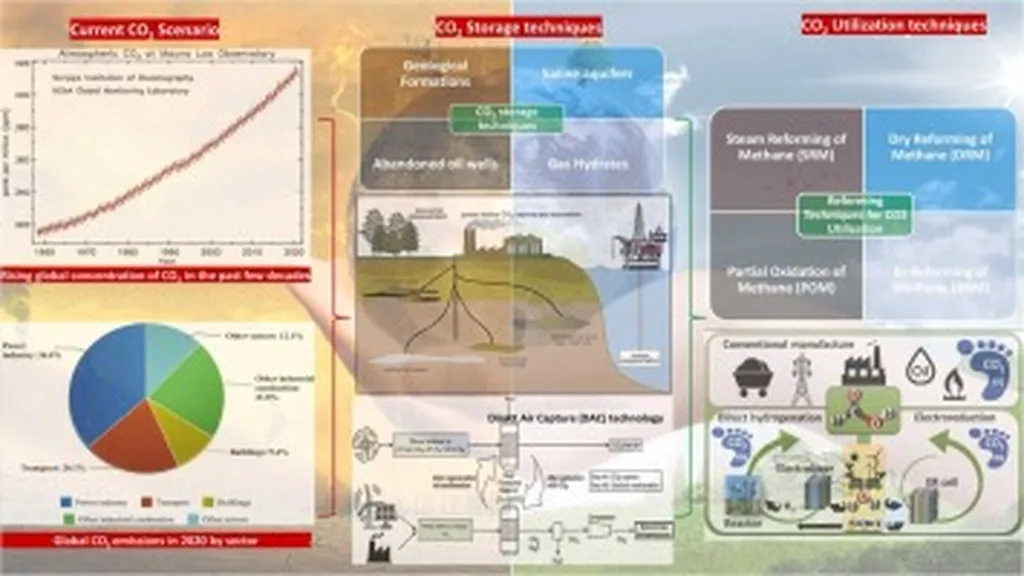In a significant stride toward sustainable energy solutions, researchers have unveiled a groundbreaking study published in the journal “Carbon Capture Science and Technology,” which translates to “Carbon Capture Science and Technology” in English. The research, led by an unnamed author from an undisclosed affiliation, presents innovative methods for enhancing carbon capture technologies, a critical component in the global effort to mitigate climate change.
The study delves into the intricate science behind carbon capture, offering new insights into how industries can more efficiently extract carbon dioxide from emissions before it enters the atmosphere. This process is pivotal for energy sectors, particularly those reliant on fossil fuels, as it provides a viable pathway to reduce their carbon footprint without necessitating an immediate overhaul of existing infrastructure.
“Our findings demonstrate that by optimizing the chemical processes involved in carbon capture, we can significantly improve the efficiency and cost-effectiveness of these technologies,” said the lead author, whose work has garnered attention for its potential to revolutionize the energy sector. The research highlights the use of advanced materials and novel techniques that could make carbon capture more accessible and scalable for commercial applications.
One of the most compelling aspects of this study is its focus on the commercial impacts for the energy sector. By making carbon capture more efficient, industries can comply with increasingly stringent environmental regulations while maintaining profitability. This dual benefit is crucial for fostering widespread adoption of carbon capture technologies, which are essential for meeting global climate targets.
The implications of this research extend beyond immediate applications. As the energy sector continues to evolve, the insights gained from this study could shape future developments in carbon capture and storage (CCS) technologies. “The potential for this research to influence the future of energy is immense,” the lead author noted. “By making carbon capture more viable, we are not only addressing current environmental challenges but also paving the way for a more sustainable energy future.”
The study’s publication in “Carbon Capture Science and Technology” underscores the growing importance of interdisciplinary research in tackling global energy and environmental challenges. As the world seeks innovative solutions to reduce greenhouse gas emissions, this research offers a promising step forward, demonstrating how science and technology can converge to create a cleaner, more sustainable future for all.
In the broader context, this research highlights the need for continued investment and collaboration in the field of carbon capture. As industries and governments worldwide strive to meet their climate commitments, the insights from this study could play a pivotal role in shaping policies and technologies that will define the energy landscape of tomorrow. The lead author’s work serves as a reminder that the path to a sustainable future is not only about developing new technologies but also about refining and optimizing existing ones to maximize their impact.

